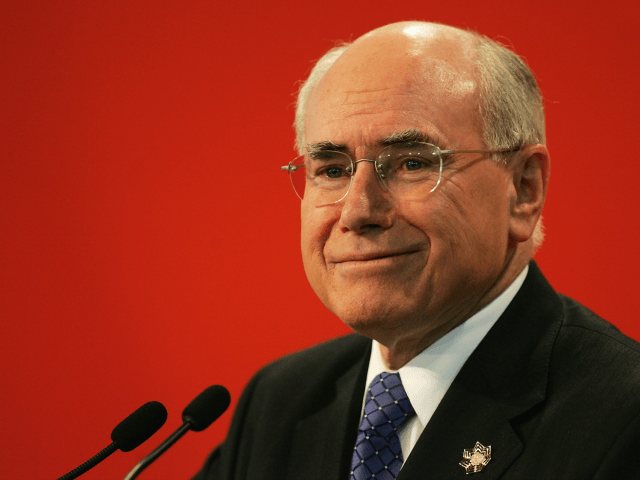John Howard, former Prime Minister of Australia, has a fair claim to the title “greatest living conservative statesman”. This week, at London’s National Gallery, he was presented by the Alliance of Conservatives and Reformists in Europe (ACRE) with the Edmund Burke Award. In his acceptance speech (which you can read in full here), he argued that now more than ever conservatism matters.
Here are some of the highlights:
No, climate change is not the great moral challenge of our age
I often hear of those on the Left saying the great moral challenge of our age is climate change. I think that’s nonsense. The great moral challenge of our age remains as it has been for many ages: the removal, through fair means of free-market-based growth, of the gap between the rich and the poor.
That’s the great moral challenge. And that is the methodology by which that gap should be closed. Not by state ownership and redistribution. But rather, by the fruits of competitive capitalism and globalisation.
Politics is not a public relations contest – it’s a battle of ideas
When I think of those towering figures of world conservatism, Margaret Thatcher and Ronald Reagan, we are instantaneously reminded that theirs were lives committed to the great battle of ideas.
When Ronald Reagan told his speechwriters that he was going to deliver a speech calling on Mr. Gorbachev to tear down that wall, they shuffled their feet. Many of his foreign affairs advisors said well maybe it’s not quite the right time to say that. The Wall had been up for a few years by then. But he went ahead and he did it.
Reagan was an exemplar of a person who understood that at crucial moments in the history of his own nation, and of the world, there was a time to stand against any tide of nervous public opinion in favour of principle. As far as he was concerned, there was a great principle involved.
The growth of identity politics is a menace
And it’s very important that we understand that we are dealing with an electorate that is more prone to approaches not based on principle, but on what I regard as the insidious rise of identity politics. Identity politics whereby you seek to gather the support of a group based on what that group has in common, not the support of that group for a common principle which might gain acceptance throughout the entire community. That is not a healthy development.
Brexit reminded us of the primacy of the nation state
I think it’s also important to remind ourselves – and this is perhaps the one comment that I might make on your recent referendum on membership of the European Union – is that despite what we are frequently told by many, we still live in a world of the nation state. It is still a Westphalian world. It is still a world where the key organising principle of world affairs is relations between nations.
That is not a call to move away from international cooperation. It is simply a recognition of what the nation state can achieve.
The most important ingredients for a successful conservative nation state are…
If you have a robust parliamentary system, if you have a completely free media, if you have an incorruptible judiciary, you’ve got the elements of a free society – you’ve got the basics.
Political correctness is undermining free speech – and this is very worrying, as these two examples show
Recently, a well-known cartoonist in The Australian magazine, Bill Leak, published a brilliant cartoon which depicted an Aboriginal policeman holding an Aboriginal boy and confronting the father of that boy and saying to the father: “It’s about time you taught him about personal responsibility.” The father, holding a can of beer, said: “Righto, what’s his name then?”
It was a brilliant, perceptive cartoon, that made the point that failed fatherhood is a series problem – and I think it was a point that was applauded around the community, not just in relation to the Aboriginal community, where failed fatherhood is a problem, but other communities where the same is true.
And yet, for his pains, this man and his magazine were dragged before the human rights commission in Australia and asked to explain. That is a terrible assault on free speech. A terrible assault on free speech. Burke would be appalled – rightly so.
I think Burke would also be appalled about what I might loosely call the baker’s case in Northern Ireland. Where a baker has a view about same-sex marriage which he’s entitled to have, which other people don’t have, but that’s not the point. The point is he gets prosecuted for refusing to place a statement on the icing of a cake that does not reflect his own personal view. And the man ends up being dragged before the courts.
I don’t condemn the judge – the judge was enforcing his interpretation of the law. But if we really live in the shadow of Edmund Burke, and we revere him, and we value his principles, then surely we would look at those two examples of the way in which a creeping political correctness has spread, the manner by which any discrimination laws have been carried to almost demented lengths, and we would express our concern and our alarm at those developments.

COMMENTS
Please let us know if you're having issues with commenting.